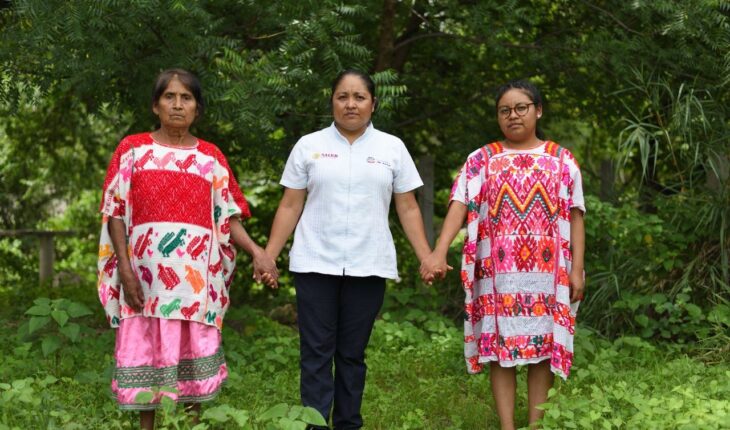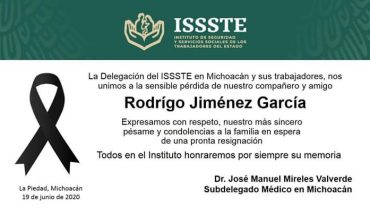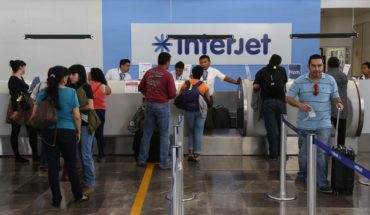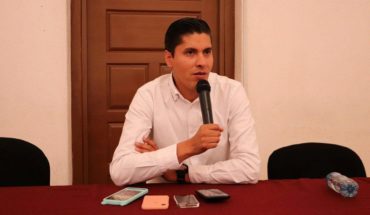It was August 15, 1996, Petra García Patricio was 13 years old. He remembers that day perfectly: his father went out to do a masonry job, immediately his mother warned him: “You are leaving now or you stay forever in the village.”
Petra had been listening to the talks her mom and dad had at night for weeks.
“I heard my dad tell him that he was negotiating, that he was watching to see who gave him more for me,” she recalls.
The first time he heard the conversations he didn’t understand, he did it when his dad in a firm voice told his mom that they had to sell her.
“I got really scared and from there I could hardly sleep.”
Read: Women break the tradition of forced marriages and sale of girls in Guerrero
Time passed and families came to his house asking to negotiate with their father. Every time, Petra ran to hide. They came asking for men who were twice her age.
“I remember it well: a man came to talk to my dad. He brought him a carton of beers so that he would no longer deal with anyone else. That’s when I told my mom that I had already heard everything and that I wasn’t going to stay in town. My mom cried, she told me that she in the village couldn’t do anything because that’s how the customs were.”
Her mother found a way to help her: she refused all offers, lengthened the negotiation period. That time was gold for Petra. He secretly began to plan his escape: he kept an eye on the passing vans that passed every three days, he asked his teachers how to get to other places.
A problem arose: his mother became ill and his help was indispensable for the care of his younger siblings.
“According to the customs and customs if the mother dies, the eldest daughter takes care of the brothers. Those days I spent thinking: my brothers or my desire to study,” he recalls.
He arrived on August 15. His dad went out to work in another community. Her mother came over and said, “Daughter, don’t worry, if I die and you come back and you can’t find me that God will accompany you, go, don’t worry about what your father can do to me.”
Petra took some dresses that her best man gave her, her old clothes she had, her birth certificate, her primary school certificate and threw it all into a transparent nylon bag.
“Have these 50 pesos, I can’t help you with more,” his mother offered.
He ran to the next town to reach the passenger van. When he saw it coming, he did not hesitate: he climbed up.
Everyday abuse
Petra is 39 years old. It is na savi, originally from Cochoapa El Grande, in the Mountain of Guerrero. She studied nursing, has a bachelor’s and master’s degrees. In this pandemic she was one of the coordinators in the application of the vaccine against Covid-19 in the Mountain region. For 25 years she has lived alone, far from her parents’ house. He is independent and, above all, feels free.
Achieving this has not been easy. He has always had adversity in front of his face.
“From the age of two and a half I was mistreated by my dad. In my village women are not recognized with rights. My mom didn’t do anything because abuse was normal for her, she was also mistreated.”
—At two years old, what was the abuse?
“The abuse was with anything my dad had nearby: with a mecate, machete, firewood. When he hit he didn’t measure himself, the belts left them marked on our backs.
“Was there anything that caused the abuse?”
“He didn’t like to hear noise, if we laughed, if we screamed, if we cried. If he was hungry and was not served quickly, he would get even with us. For no reason he hit us. I remember one occasion very well: he grabbed my dress and threw me, then my brother. He took us out because we were crying. That time, I remember, it was raining. He left us there for a long time.
With the earthquake of 1985, Petra recalls, they left their village and went to live in a very different place, where another language was spoken and there were other customs, but little changed.
“The fact of changing places did not change the situation, it followed the same thing: abuse, with that same idea that women are worthless.”
In this new village, Petra began to study, entering at the age of seven to first grade. Her mother enrolled her despite her father’s disagreement.
Their father only taught them to work in the fields because he said that was their inevitable future.
“In this school I saw another way of life. That’s where I started thinking that I didn’t want to be an abused woman like my mom or submit to a man like my dad.”
In this village they lived until Petra turned 13, when she was “old enough” to be sold.
See also: Indigenous minor imprisoned in Guerrero after fleeing to avoid forced marriage
This happens if you do not accept the deal
The sale of girls in some municipalities of the Mountain of Guerrero is a recurrent practice. They call it the dowry, a traditionn ancestral of the original peoples, although now it is a simple economic transaction. Before, it was an offering that one family gave to another for the happiness of a new couple. They delivered flowers, breads, beer, some animals and money. No fees.
It was a way to thank for the upbringing of the woman and a way to appease the sadness that caused the family to let go of one of their daughters who are “the joy of the house”.
Not now, the families get into intense negotiations until they reach an amount and the offering is left in the background. The payment varies between 40, 80 to 150 thousand pesos for a girl. It is established, according to tradition, in three aspects: age, behavior and education.
Can the girls and women of these villages disobey this tradition?
Yes, but there are consequences. The latest case is that of Angélica, a teenager who on September 29, a group of community police from the Dos Ríos community, in Cochoapa El Grande, arrested along with her aunt, a 70-year-old woman, and her three sisters: one eight years old and the other two six.
They were arrested because Angelica ran away from the home of the father of the man with whom she was forced to live. The community members warned her that if she did not return 210,000 pesos — double what they paid for her — they would not release her.
She ran away because the father of the man she was sold to tried to rape her four times.
Angelica and her three sisters spent 11 days in detention.
The case was known until his mother, Concepción, reported it to a hospital, in the municipality of Ometepec, on the Costa Chica. A day earlier, Concepcion arrived at the police station with food for her three daughters. She argued with the community members until one of them hit her.
Concepcion was pregnant with triplets. The assault caused her to have an abortion: she bled to death in the corridor of the police station.
Abuse. Sexual violence. Hunger
On August 15, 1996, Petra arrived in Tlapa at about eight o’clock in the evening. The passenger charged him 55, he was left to owe.
“I remember him telling me he was going to charge my mom the five pesos.”
When she got off the passenger, she was left alone. I didn’t know the city. He began to walk until a woman approached him and asked why he was alone.
He told him that he was looking for some uncles and his brother in the Caltitlan colony. He took her there. He went around asking about his uncles and brother, until he found them.
“That’s where another stage of my life began. I thought my uncles were good people.”
Petra and her brother lived in the early years of the husband’s house of one of their aunts. He was a teacher who with deception took his aunt to live with him in Tlapa. However, the other relatives there came to ask for lodging.
With his brother they slept on a piece of cardboard on the dirt floor in a room they shared with two of their uncles, their mother’s brothers, and another of their cousins.
The first few days her brother tried to convince her to return, Petra was determined, even without knowing what awaited her.
He spent days without eating, he went through the bed of the El Jale River looking for leftovers.
“We ate the pieces of vegetables I had thrown away, rice, sometimes we went up to three days without eating.”
He never lost sight of the fact that he wanted to study high school. He went to ask Sor Juana High School, because they told him that they accepted “the poor” there. So it was, the director gave a space in the evening shift.
He found work: he sold sweets and was paid 30 pesos a month. He quit work when the owner hit him.
“In the first job he was very heavy, he even bled his shoulder from carrying, he treated us badly, once he hit me and I said I was not going to accept it because I had run away from my house because of that,” he says.
He found a new job in a house doing the cleaning, they paid him 50 pesos a month and of these every week they gave him 15. At that moment Petra felt a relief, she felt that things improved.
But in the room where they lived, the abuse came. Her uncles tried to rape her. They tried when their brother wasn’t there. She defended herself to prevent it but in the end they beat her.
“They put us to fight and the one who lost was punished. They bet. The one they lost was given to drink. I never lost, I don’t know where I got strength, many times I saved myself, they were street fights, without rules.”
He left the room and work and went to live with a family to take care of a child.
“There they also wanted to rape me, that time three chamacos came in who beat me, they were hanging me, they tore off my dress. I say that God exists because that day the child I was caring for was tiny and barely walking. The child at the time of the attack was in bed and when he did not see me he went down to look for me and I do not know what happened but he released his bottle and when he made noise these chamacos thought that there were people, otherwise the child would have been I think that if they killed me, it would have been a femicide. I remember that child a lot, because he saved me.”
Salvador Cisneros/Poppy Journalism
Abuse for those who stayed
I feel that my mother suffered a lot of abuse because of my flight. I have talked to her but she gets sick, she cries a lot and now for her health I do not try. What she has told me is that when I ran away she was hit very ugly by my dad. He told me three years ago, he didn’t tell me anything, I think so as not to make me feel guilty. My dad told him I ran away because of his bad advice. My mom always wanted to support her daughters but with my dad it was very difficult.
My sister who follows me, Guadalupe, did suffer a lot because she was in my place. She stayed to grind, to do everything that touched me. She was not sold because my mom got very ugly sick, she was about to die, her hair fell out. We do not know why, he was never studied. I imagine it was her menopause. And at that time my dad was waiting for my mom to die to join other women. My sister suffered a lot, she demanded a lot. With her he took it out. My sister came to Tlapa to study high school, but she didn’t like it and what she did was talk to my other brothers and she went to the United States. He didn’t warn my parents, he warned when he was already at the border. I think she also left because here in Tlapa they came to ask for her. But this also worked for my younger sister, Isaura. With her they didn’t even try. She was already rebellious. They accepted her boyfriends, supported her to study. And that’s good.
Sorry, but I don’t forget
“Have you talked to your dad about what he did to you?”
“Some time ago we talked but he doesn’t answer me, he stays silent. The only thing he said to me, crying: “daughter I know it hurts you what I did but I already did it.” It was the only thing. I’ve tried three times but he just crouches down and doesn’t say anything. The last time we went out to the field in Alcozauca, we went to collect ocote, firewood and there we talked. I do this because the psychologist recommended that I had to talk to him to heal the wound well.
“Do you feel that there is something pending with your dad?”
“I have already forgiven. But my dad kept drinking. Once I went to visit them, he came in drunk and hit my mom and I got in and hit me in the face. That time I didn’t know him like my dad. That time they had to tie it up, it was uncontrollable.
“You’ve tried to heal everything, but do you feel like there’s anything left?”
“Yes, there is always something left. Before it was more difficult, I had a crisis, I could not talk about this but now I do it with more tranquility. The truth is that I don’t want to have children because I don’t want to mistreat them, because that’s what I was taught and I better not. I have been told by psychologists that my children should not go through the same thing, but I have a lot of distrust and then in the hospital I see many things, how children arrive raped by their parents, their grandparents, their uncles.
“When you were alone in Tlapa, in the most difficult moments, did you think about returning to your village?”
“No, never. As hard as it was, I always thought about moving on. Yes there were very difficult moments, we spent days without eating, but I never thought about returning because I knew what life I was going to lead.
This article was originally published in Amapola Periodismo
What we do at Animal Político requires professional journalists, teamwork, dialogue with readers and something very important: independence. You can help us keep going. Be part of the team.
Subscribe to Animal Político, receive benefits and support free journalism.#YoSoyAnimal





